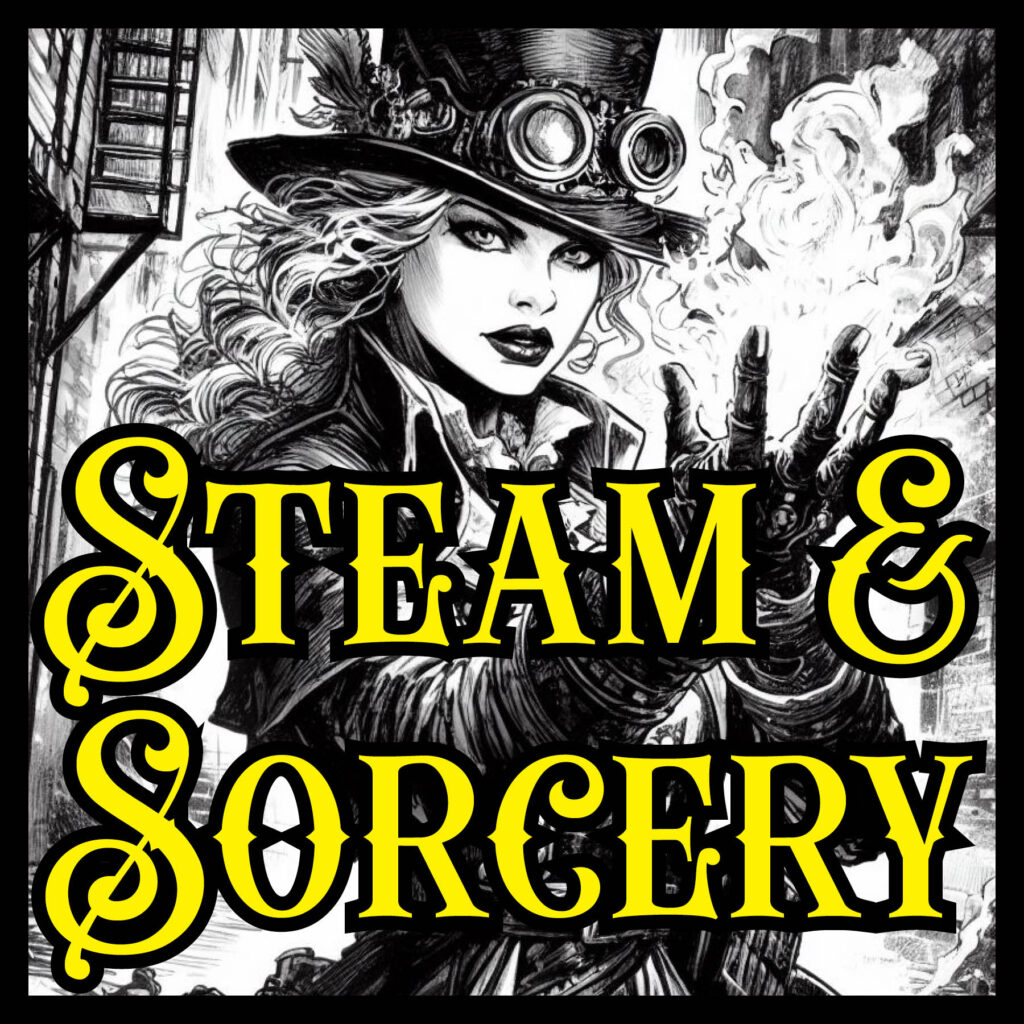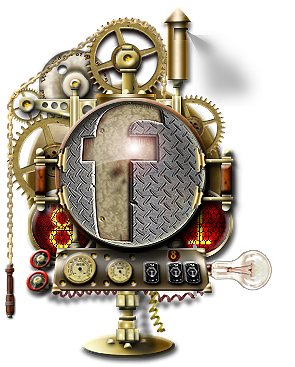It is important that all players participating in a LARP scene are doing so willingly. No one should be bullied into a conflict, even a fictional one, without their consent to play. Players may, therefore, refuse any challenge and decline a conflict as they see fit. In general, it’s much better to have an opponent who wants your challenge.
Start of a Scene & Turn Order
When a challenge or conflict is being faced by players, whether it be combat, hacking, magic, or anything that requires a coin toss to determine the outcome, this moment of the game is referred to as a Scene. A scene is made up of however many Turns and Rounds it takes to resolve the scene; a collection of turns makes a round of turns (AKA a round).
A scene is made of rounds.
A round is made of turns.
Turn order, also known in many games as initiative, is determined by players making an initial coin toss with however many silver coins in total remain in the Stamina section of their character sheets. Characters must have at least one Body, Mind, and Spirit silver coin left to be able to participate in a scene. The character with the most silver coin successes (heads) get their turn first, the next highest goes second, and so on. Ties can be broken with the flip of a single coin. Once the turn order has been established, characters will remain in this sequence until the end of the scene. If there are multiple players in a Scene, it could be helpful to use a pack of playing cards to label each player’s turn by handing them a card showing their turn order.
Each time a player’s turn comes around, they may declare what action they would like to take.
- Characters use the information on electronic character cards (saved on your smartphone) and the validated character sheet to establish their coin pool numbers.
- All players in a scene act as witness to coin tosses to ensure game play honesty; unless at least one conflicting player sees the coin toss, it does not count.
Physical Conflicts (Body)
1. DECLARE TARGET
- Whether it be ranged or melee combat, a player planning on attacking another (the Attacker) character declares a target (the Defender).
- Note – defense from an attack does not use a player’s action as this is a reaction.
2. GATHER COIN POOLS
- The attacker gathers their current silver coins (quarters) along with any bonus copper pennies from skills, weapons, etc.
- The defender gathers their current silver coins (quarters) along with any bonus copper pennies from skills, weapons capable of blocking, armor, etc. Sometimes magic can be used against physical attacks.
3. TOSS THE COINS!
- The attacker and defender toss their coin pools at the same time into separate spaces (visible to all). The one with the most successes (heads) wins the turn. Whoever is victorious on that turn can add color to the scene by describing or acting out the success.
- If the attacker wins that turn, the defender takes a short-term wound (see below) and removes one quarter coin from their pool.
4. NEXT TURN!
- Move on to the next player’s turn.
Mental Conflicts (Mind)
Not all combat is fisticuffs; many are resolved by a battle of wits, social sabotage, or other psychological means.
Mental conflicts operate with similar mechanics to physical conflicts but dimes are used instead of quarters.
Role-playing the scene with witty insults is a great way to add color to the mental combat.
Some mental conflicts may not be against other characters and may involve a specific skill to solve a puzzle, such as a Clacker trying to steal information from a Difference Engine Network (DEN) computer; these scenes are usually arbitrated by an NPC who will have specific details on the challenge’s requirements.
Magical Conflicts (Spirit)
Some characters may attack, defend, or assist by the use of magic spells.
If defending from a spell attack, the defender must use their pool of spirit coins (nickels) and whatever copper coins can be pooled from appropriate skills or items.
Some spells (mostly attack ones) will require a straight forward higher amount of successes than the defender, but many will require a skill based toss to reach the number of successes specified by the spell card.
Some of the more powerful spells actually temporarily drain players of their spirit points in order to cast it, but these points can be regained by resting during a round.
Wounds, Resting & Healing
WOUNDS
There are two types of wounds that can happen to either a character’s Body, Mind, or Spirit:
Short-Term Wounds are the loss of silver coins during a scene. These can be restored through resting or healing while the scene is still active.
Long-Term Wounds occur when multiple short-term wounds have completely depleted a character’s silver coins in any of the three Body, Mind, or Spirit attributes. Long-term wounds are recorded by crossing out coins on the Stamina section of the character sheet. These stamina wounds can only be healed by specific NPCs such as Fixers but are also restored when a character levels up.
RESTING
Characters may regain a temporally lost (during a scene) silver coin of any kind by resting when it is their turn. The player can not perform any other action and the rest is considered disturbed if the player has to defend themselves during that round of turns.
Players can rest during multiple turn to regain multiple lost silver coins from that Scene, but at a rate of one coin per rested turn.
HEALING DURING A SCENE
Long term medical attention to lost stamina points requires a Fixer or Arbiter to administer, however, short-term healing during a scene can be given by those with appropriate skills, equipment, or magic.
If capable of some form of healing, characters may use their turn to apply immediate aid to another character (or themselves). A healing action can restore silver coins lost thus far from that particular scene, but may not exceed the current Stamina score.
Non Combat Actions
Many actions during a scene might not involve any kind of combat. Most of these require a skill based toss related to the information on the appropriate character card or equipment card.
On these occasions a certain number of successes is required to meet the challenge; players will use the base silver coin pool along with additional copper from skills, items, etc. that apply to the challenge.
These situations are using managed by an NPC who will have specific details on how to attempt the challenge.
End of a Scene
By the time the outcome of the whole scene has been revealed, any character who was depleted of silver coins in either Body, Mind, or Spirit (or more than one category) loses a Stamina point from that category until properly healed.
If a character reaches zero stamina in either three categories they are unable to participate in challenges and conflicts until proper healing has occurred.










